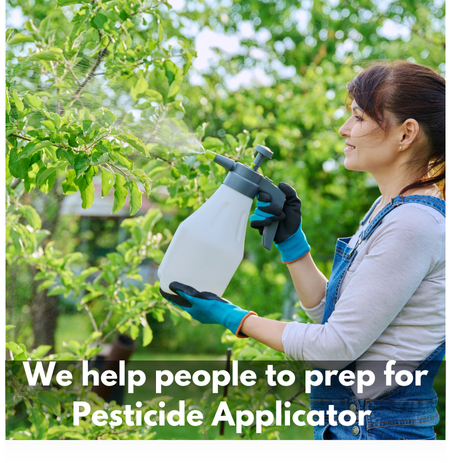Pesticide applicators are crucial in modern agriculture, landscape management, and public health. These professionals are responsible for safely and effectively applying chemicals designed to control pests, weeds, and diseases that threaten crops, ornamental plants, structures, and human health. To ensure they possess the necessary knowledge and skills, many aspiring pesticide applicators take a Pesticide Applicator Practice Test. Far from being mere ‘sprayers,’ pesticide applicators are skilled technicians who must understand chemistry, biology, environmental science, and equipment operations to perform their duties effectively.

Core Responsibilities
The primary responsibility of a pesticide applicator is to apply chemicals according to strict guidelines while maintaining safety and efficacy. This involves:
Assessment and Planning: Before any application, the technician must evaluate the pest problem, identify the appropriate chemical solution, and develop an application plan that considers factors such as target organisms, application area characteristics, and potential risks.
Mixing and Preparation: Applicators must precisely measure and mix chemicals according to label instructions. This often involves complex calculations to determine proper dilution rates and application volumes.
Application: Using specialized equipment, applicators must deliver chemicals in a manner that maximizes effectiveness while minimizing drift, runoff, and non-target exposure. This requires skill in equipment calibration, operation, and maintenance.
Documentation: Detailed records must be maintained for each application, including products used, application rates, weather conditions, and locations treated. These records are essential for regulatory compliance and liability protection.
Monitoring: After application, technicians often evaluate treatment effectiveness and may recommend follow-up measures if necessary.
Required Skills and Knowledge
Successful pesticide applicators develop expertise in several key areas:
Technical Knowledge: Understanding pest biology, chemical properties, application methods, and environmental factors that affect pesticide performance.
Mathematical Proficiency: Ability to calculate area measurements, dilution rates, calibration settings, and application volumes accurately.
Equipment Operation: Skill in operating, maintaining, and troubleshooting various application equipment, from simple backpack sprayers to complex mechanized systems.
Physical Stamina: Many application jobs require working outdoors in varying weather conditions, carrying equipment, and standing for extended periods.
Attention to Detail: Precision is essential when working with potentially hazardous materials. Small errors in mixing or application can lead to significant problems.
Communication Skills: Applicators often interact with clients, the public, and regulatory officials, requiring clear communication about treatments, safety procedures, and expectations.
Industry Importance
Pesticide applicators serve as essential personnel in several key industries:
Agriculture: Commercial applicators help farmers protect crops from yield-reducing pests and diseases, directly impacting food production and security. They may work independently or as part of agricultural service companies.
Landscape Management: In urban and suburban environments, applicators maintain the health and appearance of lawns, gardens, parks, and golf courses by controlling weeds, insects, and plant diseases.
Structural Pest Control: These specialists protect buildings from damage and occupants from health risks by controlling termites, rodents, cockroaches, and other structural pests.
Public Health: Some applicators focus on controlling disease vectors like mosquitoes, ticks, and rats, playing a critical role in preventing outbreaks of diseases such as West Nile virus, Lyme disease, and plague.
Forestry: Forest health specialists apply pesticides to manage insect outbreaks and diseases that threaten timber resources and ecosystem health.
Professional Development and Ethics
The pesticide application profession requires ongoing education to stay current with evolving regulations, emerging pests, and new control technologies. Many applicators pursue specialized certifications beyond basic licensing requirements to demonstrate expertise in specific application methods or treatment areas.
Ethical pesticide applicators recognize their responsibility to protect human health and the environment. They adhere to the principle of integrated pest management (IPM), using pesticides judiciously as part of a comprehensive approach that includes prevention, monitoring, and non-chemical control methods when appropriate.
As public awareness of environmental and health concerns grows, professional pesticide applicators increasingly serve as educators, helping clients understand the importance of responsible pest management and the role of pesticides within broader ecological contexts.